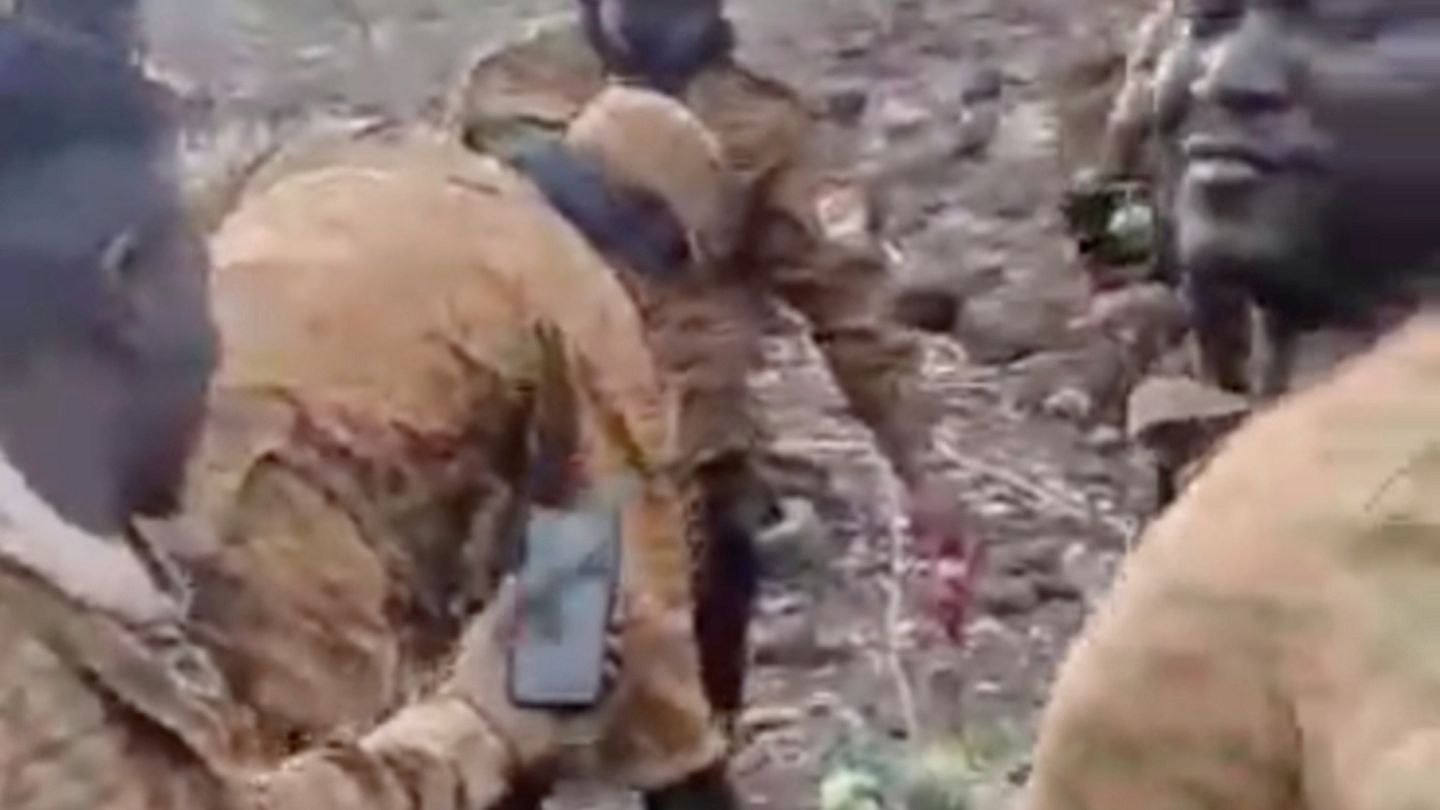ICC urged to probe Wagner Group over promotion of atrocities in West Africa
Legal experts from UC Berkeley have argued to the International Criminal Court that the Wagner Group's alleged complicity in atrocities and its apparent weaponisation of social media could constitute war crimes.
Legal experts have asked the International Criminal Court (ICC) to investigate the Russia-linked Wagner Group over alleged war crimes, arguing that it may have breached international rules by sharing images of apparent atrocities in West Africa.As the US and France have retreated from the region, Russia has increasingly stepped in, with its mercenaries fighting on the sides of military governments against jihadist fighters in countries including Mali, Burkina Faso and Niger. Russian mercenaries from the Wagner Group have been accused by Human Rights Watch (HRW) of committing serious abuses against civilians in Mali.In a confidential brief obtained exclusively by the Associated Press, experts from the University of California, Berkeley, argue that images and videos of apparent atrocities shared on social media could provide evidence of war crimes — but also that the spreading of this content could in itself constitute a war crime. The argument was made on the basis that under the Rome Statute which underpins the ICC, the violation of personal dignity is a war crime. Lindsay Freeman, director of the Technology, Law & Policy programme at UC Berkeley School of Law’s Human Rights Centre, said: "Wagner has deftly leveraged information and communications technologies to cultivate and promote its global brand as ruthless mercenaries. Their Telegram network in particular, which depicts their conduct across the Sahel, serves as a proud public display of their brutality."Torture, mutilation and cannibalism The report, which was submitted to the ICC before the US sanctioned the court earlier this year, includes examples of atrocities that appear to have been committed in Mali and Burkina Faso. It found that a network of channels, which open source analysts said are likely run by current or former Wagner members, has shared videos and photos purportedly from Wagner fighters depicting abuses by armed, uniformed men, often accompanied by dehumanising language about their victims. In July, a Wagner-affiliated Telegram channel reposted three videos of men who appeared to be members of Mali’s armed forces and the Dozo hunters, a local allied defence group, committing apparent abuses that allude to cannibalism. In one, a man in the uniform of Mali’s armed forces is cooking what he says are human body parts. In the same month, a video apparently from Burkina Faso was also shared on X depicting an armed man in military trousers holding a severed hand and foot, at one point grinning as the foot dangled from his teeth. The videos were removed from X for violating its rules and put behind a paywall on Telegram. Both countries' armies sought to distance themselves from the images and videos, calling them examples of "rare" atrocities and saying they would identify those responsible, although it is unclear if they did.Telegram told the AP that content encouraging violence is "explicitly forbidden" and "removed whenever discovered". "Moderators empowered with custom AI and machine learning tools proactively monitor public parts of the platform and accept reports in order to remove millions of pieces of harmful content each day," Telegram said. It did not say whether it acts on material behind a paywall.After Wagner leader Yevgeny Prigozhin was killed in a plane crash in 2023, Moscow has been building a new paramilitary group, the Africa Corps, which is under tighter control of Russian authorities. Africa Corps is viewed as a successor to Wagner and many of its mercenaries are former Wagner fighters.'Psychologically terrorising civilians'The brief by UC Berkeley requested that the ICC investigates individuals with Wagner and the governments of Mali and Russia over alleged abuses in northern and central Mali between December 2021 and July 2024, such as extrajudicial killings, torture, mutilation and cannibalism — as well as the alleged crime of spreading videos promoting these atrocities, adding "a new dimension of harm to an extended group of victims"."The online distribution of these images could constitute the war crime of outrages on personal dignity and the crime against humanity of other inhumane acts for psychologically terrorising the civilian population," Freeman said.It is the first time this argument has been made to the ICC. But Freeman noted that there is legal precedent in some European courts for charging the war crime of outrages on personal dignity based primarily on social media evidence.Actual cases of cannibalism in the context of warfare in the Sahel, are "likely rare," said Danny Hoffman, chair in international studies at the University of Washington.But "the real force of these stories comes from the fascination and fear they create," he said of such videos.The aim of such content is to humiliate and threaten those considered the enemies of Wagner and its local military allies — but experts said it can also trigger reprisals and help jihadist groups recruit.


